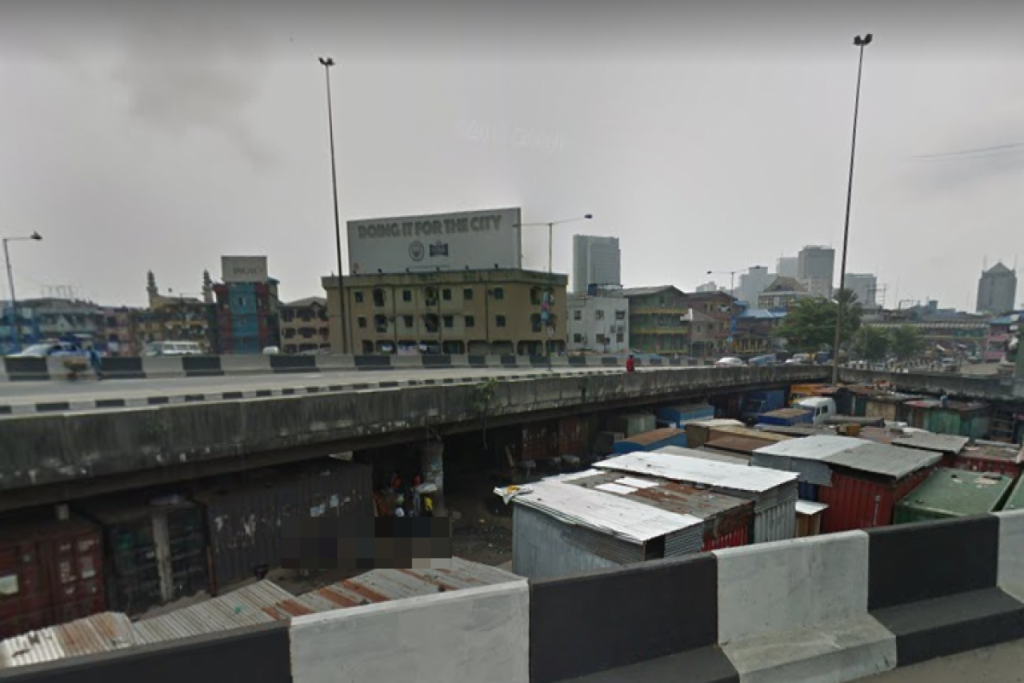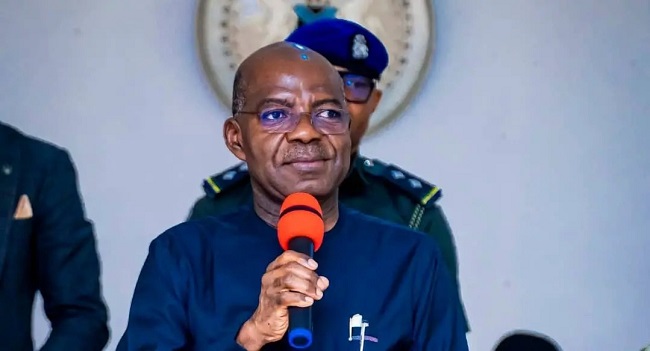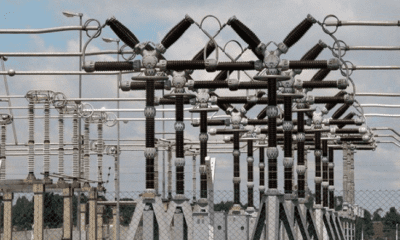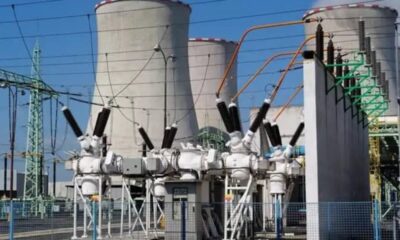News
We’re sustaining electricity subsidy for 85% consumers – FG

The Nigerian government, through the Ministry of Information and National Orientation, has said that the Tinubu administration is sustaining electricity subsidy for 85 per cent of Nigerian consumers.
The Minister of Information and National Orientation, Mohammed Idris, said that this re-justifies the administration’s credential as a pro-people democratic government.
He maintained that the recently announced hike in electricity tariffs is only affecting 15 per cent of the electricity consumer population.
The minister spoke at the 4th Ministerial Briefing Session held in Abuja on Friday.
The briefing featured Minister of Power Adebayo Adelabu and Vice Chairman of the Nigerian Electricity Regulatory Commission, NERC, Oseni Musiliu.
The discussion was based on the recently approved tariff review by NERC.
“Misconceptions and concerns around the tariff review are understandable. However, let me reassure every Nigerian that this review is a strategic step towards a more sustainable, efficient, and equitable electricity sector,” he said.
He further disclosed: “It lays the groundwork for significant improvements in service delivery, infrastructure development, and economic prosperity. Our focus must, therefore, remain steadfast on ensuring that the electricity sector’s transformation benefits all Nigerians, supports our industries, and propels our nation towards its bright future.
“You would also recall that President Bola Ahmed Tinubu signed the Electricity Act (Amendment) Bill, 2024, into law to further strengthen the governance structure in the power sector and mandate the GENCOs to set aside 5 per cent of their actual annual operating expenditure from the preceding year for the development of the host communities.
“The act also removed electricity from the exclusive list to empower the state government to generate and distribute electricity to residents.”
News
The minimum wage issue: Numbers vs Value


By Dakuku Peterside
The issue of minimum wage or salary increase or by whatever nomenclature is a complicated policy issue. The wage increase is neither good nor bad, but as a policy choice, it must be tied to some ultimate objective and benchmarked on the projected cost of living and inflationary trends over a given period. A pay rise can improve employees’ motivation while giving them more purchasing power and disposable income. It may result in businesses being shut down, hyperinflation, joblessness, and a decline in the value of the national currency. At face value, salary increases are a tool to address inequality, poverty, and welfare or an incentive to check corruption. However, the issue is more profound than this surface-level discourse.
Recently, the federal government announced a new salary raise for mainstream federal workers. This is not the new minimum wage; at least, that is what we are told. Some state governments followed suit with discordant tunes. The truth is that for the average Nigerian worker, with headline inflation at 33.2% by March 2024 and food inflation at 40.1%, the current wage is insufficient and cannot sustain any worker. This underscores the need for the government and all labour employers in Nigeria to review salaries. However, the government’s current economic realities and financial position make it challenging to create a salary increase that is not backed by increased value and productivity. While it may seem complicated, this measured approach is necessary to avoid harsh negative implications on the economy and the unintended backlash on people with low incomes and many on the fringes of our society.
Expectedly a policy to help people experiencing poverty and create some semblance of equity within our socio-economic ecosystem, salary increases for government workers, albeit less than 25% of the workforce, will have ramifications. Given these difficulties evident in the new policy, the government and labour leadership must play a balancing act to midwife a new salary structure that is fit for purpose yet germane to the multifaceted nuances of our current economic reality.
The wage increase will result in both negative and positive economic impacts. On the negative side, inflation will worsen, small and medium-scale businesses (SMEs) barely managing to survive will be hugely impacted, and the cost of doing business will skyrocket. How many SMEs can afford this increase? Most of the companies are struggling with paying the existing minimum wage, given the rise in the cost of doing business, interest in loans is over 40%, the cost of raw materials is over the roof, consumers with little income are squeezed to a pulp by the constant increase in prices. Besides, how many state governments can afford it? Most Nigerian states have failed to optimize their potential and go cap in hand every month to FAAC. Across a sizable economic terrain like Nigeria, a uniform nationwide minimum wage may be foolhardy. Costs of living are divergent across the country. States should negotiate with labour unions for acceptable minimum wage structures in different states and geopolitical zones. There may be an urgent need to de-link the minimum wage issue from national politics.
On the positive side, wages should increase in tandem with the cost of living. It will keep workers motivated and may even help the economy rebound. A living wage is not only desirable but expedient. What Nigerian workers earn today is a “symbolic wage” and has no practical bearing on reality. The federal minimum wage, currently at N30,000, was last raised in 2019 when the inflation rate was 11-12%. The purchasing power of the naira has since been eroded by 276% (compared to the 2019 rate). Nigeria is ranked 44th in Africa for minimum wage, according to Prof. Kemi Okuwa of the Nigerian Institute of Social and Economic Research. These factors indicate the need for a wage increase to address the growing disparity between wages and the cost of living.
When implementing wage increases, the government must exercise caution to ensure that its devotion to its responsibility does not have the reverse impact. The government must develop a robust economic plan to reduce cost of living as well mitigate the ripple effects on low-income workers, SMEs, and the macroeconomy. We remember the infamous Udorji’s Commission saga and its economic impact. Many economic historians have pointed to the significant shake-up of the salary structure by the Udorji Commission as one of the major problems of Nigeria’s economy in the 1970s that upended our pricing system and created significant price inflation in the economy. We must learn from history! A situation where the monetary reward for work is increased but not based on productivity will often lead to unwarranted inflation.
Productivity and added value creation should be a significant consideration among many bases for ascribing monetary wage increases, not just policy or legislation. Can the government link the increase in public servants’ wages and salaries to measurable productivity? Any increase in the cost of production and labour at this point, with no corresponding increase in added value to production, is not sustainable and often is an aberration to the system. Therefore, a balanced approach that considers both the need for increased wages and the economic reality of our country is crucial. This will ensure that our wage policy is fair and sustainable in the long run.
The problem with government-induced increase is that only a limited number of workers, civil servants at the federal level, will get the money; many states may claim they need the means to pay that. Even if the state civil services pay that, combined with the federal civil service, they make up less than 25% of the employed workforce in Nigeria. Most of our workforce comprises low-wage workers, whom SMEs and Organized Private Sector firms employ. These small businesses are struggling to pay the N30,000 per month minimum wage, much more than the new minimum wage. This minimum wage will make these workers poorer if they do not get it like the civil servants because they all buy from the same market.
Besides, making unenforceable laws does not make sense. In other climes, it is against the law not to pay the minimum wage. It is enforced with explicit punishment for breaking the law. In Nigeria, this is different. Nothing happens even if any tier of government fails to pay the minimum wage. Most businesses will completely ignore the new salary structure, and there will be no legal consequences. The government must put some teeth to the new minimum wage rule for equity and justice and at least make it stick across the board. It must also consult widely and make the minimum wage more realistic.
I understand the need for an increase in salary because of hyperinflation that has eroded purchasing power. However, I am preaching caution and a measured approach to dealing with this issue by considering all the ramifications and putting measures in place to cushion unintended consequences. Our recent experience has shown that a salary increase may start a merry-go-round of cyclical inflation that begins with a salary increase, and then inflation eats up the value, and then we are back to where we started. In an economy with over 40% food inflation, all stakeholders must apply caution and careful measures in implementing a new salary structure. However, governments (federal, state, and local) cannot afford to play politics with the issue of “living wage.”
The implications of creating new salary structures and increasing the minimum wage are complex and multifaceted, requiring careful consideration of various factors, including economic conditions, industry dynamics, and social equity goals. Although I advocate for workers getting a living wage and meaningful salaries, given our current economic realities, a more measured approach based on value addition, productivity, and accountability will suffice. As the new wages are implemented, a corresponding demand for increased productivity must be implemented by all stakeholders to make the system sustainable.
I understand the need for government intervention in this, especially the political benefits to the government in terms of reasonable public opinion and support, good labour relations and collective bargaining dynamics, and the corresponding public and political debates and legislative actions this generates; however, the economic exigencies – potential job losses, negative impact on SMEs, and inflationary pressures – must be paramount and considered. A living wage is the right of every Nigerian, and we must fight for that to reduce income inequality gaps and fight multidimensional poverty. High productivity and less economic legislation are the way forward, and the current confusion in the debate over a minimum wage needs to be more holistic and better informed. All the variables must be on the table, devoid of political grandstanding.
News
Lagos Govt to demolish over 100 shanties under Adeniji Adele bridge today


By SodiqAdelakun
The Lagos State Government has announced plans to demolish over 100 shanties at Adeniji Adele under bridge, starting from today, May 6, 2024.
This was revealed by the State Commissioner for the Environment and Water Resources, Mr. TokunboWahab, in a statement on Sunday.
According to the Commissioner, the removal of the shanties is part of the state government’s efforts to restore sanity and cleanliness to the area.
Recall that the government had urged occupants of the shanties to vacate the area before the demolition exercise begins, to avoid any disruption or loss of property.
“The Lagos State Government will undertake enforcement action to remove over 100 shanties at Adeniji Adele underbridge from tomorrow, Monday, 6th of May, 2024.
“The removal is coming after the expiration of a 48-hour removal notice served on all occupants of the shanties to move with their belongings,” Wahab stated
He said operatives of the Kick Against Indiscipline and officials from the Monitoring Enforcement and Compliance department of the ministry will be given security backup to conduct the operation.
This exercise, according to him, is part of the commitment of the state government to reclaim all ungoverned spaces that dot the Lagos landscape.
“Apart from the unsanitary conditions of residents in the shanties, it also serves as a hiding place for criminals and points for peddling hard drugs and substances which is injurious to the wellbeing of law-abiding residents.
“Therefore, I advise all the occupants of the shanties in their interest, to voluntarily move out with their belongings before the commencement of the enforcement operations on Monday,” he added.
Lagos State’s Ministry of Environment and Water Resources has successfully carried out another enforcement exercise, this time at Adeniji Adele under bridge, following a similar operation last week in Ikoyi.
During the Ikoyi exercise, an apartment where tenants paid an annual rent of N250,000 was discovered under the Dolphin Estate Bridge.
The enforcement team removed all structures, including a container used for illegal activities, from beneath the bridge.
According to Commissioner for Information, GbengaOmotosho, out of the 450 squatters arrested under the bridge, 371 requested relocation to their various states.
News
Forensic Audit seeks return of stolen government funds, not a witch-hunt – Gov Otti


Gov. Alex Otti of Abia has said that he initiated a forensic audit of the State Government’s account to recover stolen government funds and not to witch-hunt anyone.
Otti said this on Sunday during an interactive session with constituents of Isiala Ngwa South State Constituency, in Nvosi, Isiala Ngwa South Local Government Area.
The governor said that upon assumption of office as governor, he established an audit with the primary objective of recovering stolen government funds and not to send anyone to jail.
He said that the report of the audit revealed that “a lot of money was looted and stolen brazenly” for non-existing projects which include the Abia Airport Project.
“I am looking for the airport for which funds were moved from the coffers of the government for.
“The people concerned with the act of moving the airport project funds in question went to the media and began to say all manner of things.
“If you are following the happenings in the media space, you will see these things there.
“The problem with lying is that when you tell one lie, you will need another one to cover the first lie and need three more lies to cover the second one.
“We are looking for our money and we must find our money.
“If we don’t find the airport, then they will refund our money,” he added.
According to him, the government will not relent in improving the welfare of the citizenry through various progressive initiatives that facilitate socioeconomic growth.
He said that the government was determined to recover the funds and utilise it for the development of the state.
Otti commended the House of Assembly member representing Isiala Ngwa South State Constituency, Mr Roland Chinwendu, for playing “politics of no bitterness”.
“Immediately, after the elections he came to me to make it clear that as the member representing my Constituency, he would work with me to move Abia forward.
“It is worthy of note that he is a member of the Peoples Democratic Party and I commend him for that,” he said.
Earlier, Chinwendu said that the emergence of Otti as the governor was an indication that the citizens desire good governance.
“The elections are long over and I was elected to deliver effective representation and not elected to play politics of opposition or bitterness.
“We have a governor whose dictum is practical government and good governance and I have no reason not to identify with him,” he said.
He assured the governor of the unalloyed support of his constituents and urged him to extend his infrastructural development to every part of the constituency.
Also, a Chieftain of the Labour Party, Senator Darlington Nwokocha, commended the lawmaker for reaching beyond party affiliations to support the Labour Party-led government in Abia.
He said that the present administration was poised to reposition the state through governance.
In an interview, Mr Henry Ori, Leader of the Ebubedike Movement for PDP in Nvosi Ward 5, said that the programmes and policies of the present administration were development-oriented.
“It is for this reason that we are here to show solidarity and support as well as encourage the governor to sustain the good works,” Ori said.
-
capital market2 years ago
Rt.briscoe, FBNH, Others halts negative performance of stock market
-
Finance3 months ago
Court orders Sen. Victor Umeh to repay N136m bank debt to AMCON
-



 Abuja Update2 months ago
Abuja Update2 months agoUNDP, FG partnership needed to achieve inclusion, equity- Minister
-
Abuja Update1 month ago
Banks drive stock market performance with N147bn gain
-



 Business2 weeks ago
Business2 weeks agoTingo Group unveils Tingo Electric, Tingo Cola drink at Lagos launch
-



 Health3 weeks ago
Health3 weeks agoCapacity training will reduce migration of health workers- NPHCDA
-
News4 months ago
Oil thieves sponsoring malicious media campaign against Navy – Spokesman
-



 Infotech1 month ago
Infotech1 month agoWorld Backup Day: NITDA urges Nigerians to ensure backup of data












